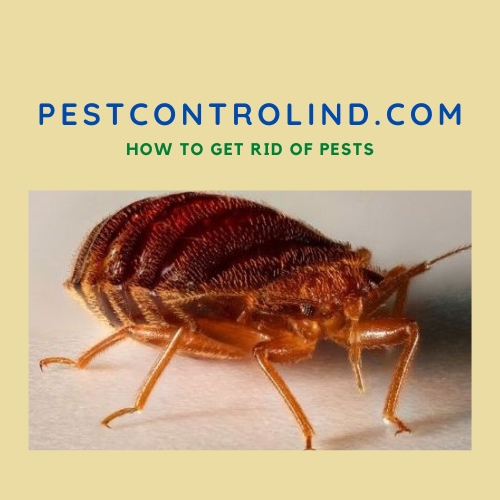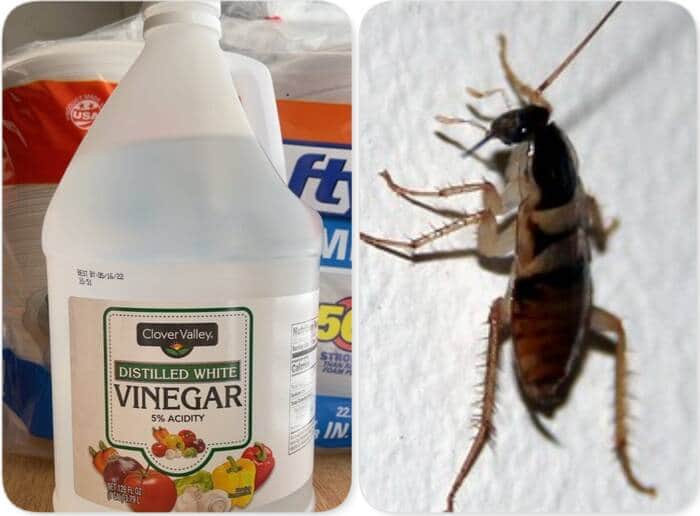The vinegar for roaches control is more popular during a cockroach infestation because of its disinfectant properties than its role as a poison.
Follow us to find out how to use this cockroach repellent, as well as other useful information about bleach and baking soda.
I. Why use vinegar for cockroaches?
Vinegar is a colorless, non-toxic, non-polluting liquid commonly used to remove tough household stains.
Still called crystal vinegar or spirit vinegar, it is composed of water and acetic acid obtained from beet sugar.
The acidity concentration of a bottle is indicated in percentage on the packaging.
This product can be used in many ways. It deodorizes, dissolves grease, removes even stubborn stains, descales, and shines.
Vinegar is also a disinfectant agent that fights microbes and bacteria. It also allows to clean the pipes and avoid the malodorous rise.
II. Does vinegar kill cockroaches?
Cockroaches are a very tough insect species that can only be eliminated with formidable methods.
A Vinegar alone is not aggressive enough to kill a cockroach, but it is unparalleled in protecting the home.
The acetic acid that is its active component is derived from the fermentation of cane sugar. This 100% natural acid will not kill cockroaches, but its action is sufficient to chase away these pests.
The white vinegar is the illustration of “prevention is better than cure”.
III. Do roaches like vinegar?
Meticulous cleaning with white vinegar is an effective preventive method against cockroach invasion and a very good repellent.
Add lemon essential oil to vinegar to clean all your surfaces.
This ecological anti-roach product can be used as a disinfectant on your work surface, and your kitchen board.
It destroys the bacteria carried by cockroaches when the house is already infested. This prevents you from the resulting diseases (salmonellosis, gastroenteritis, respiratory problems, allergies…).
It is also an excellent anti-scale. You can use it on the joints of the faucets, the sink, and the bathtub to make them shine.
By adding salt to the vinegar, you will make your liquid more effective. Cockroaches will surely not choose such a place to settle down.
1. Washing clothes
When a house is infested with cockroaches, clothes are usually infected with droppings, saliva and all the bacteria brought back in their “dirty” legs.
A vinegar can act as a radical disinfectant, as well as being a great fabric softener for your clothes.
Add it to your washing machine during a wash and you’ll get sweet results. This miracle liquid also destroys mildew stains on all surfaces and prevents them from forming again.
2. Grease Cleaner
The grease behind your appliances and stove is a permanent food source for roaches.
Fortunately, this grease is not resistant to White Vinegar as it effectively dissolves it. Not only will your kitchen be cleaner, but there’s no chance of the roaches coming back.
IV. Is bleach attractive to roaches
Did you know that these bugs love bleach? So it’s best to avoid it for your household chores if you want to get rid of or protect yourself from an invasion.
White vinegar is a perfect substitute for bleach since it has all the advantages of bleach without the disadvantage of attracting roaches.
This liquid is even more essential as it is not toxic.
You can spray it regularly to keep your home protected.
Mix vinegar with lemon essential oil in a bottle and spray. It serves as a deodorizer for your home and will make it uninhabitable for those unwanted bugs.
V. How to use vinegar and baking soda mixture against roaches
White vinegar and baking soda are both essential products in the home.
That said, mixing the two is controversially effective. Adding baking soda to white vinegar can be purely and simply useless depending on the dosage.
Vinegar has an acidic pH while baking soda has a basic pH. By proceeding with this mixture, one risks completely canceling the effects of the two products.
You will end up with a solution comparable to salt water, which is not enough for a good cleaning, especially when you have pests at home.
The mixture of these two substances produces an effervescent reaction that releases carbon dioxide, sodium acetate, and water.
Sodium acetate has never been proven to be a cleaning agent.
That said, the foam that appears during mixing, and then releases CO2, which is known to have a very good cleaning effect. Provided that both products are applied directly to the surface to be cleaned.
If the mixture is prepared in advance, the solution will be useless.
This foam is very effective in unclogging and cleaning drains and makes life difficult for cockroaches who want to invade the house by this means.

